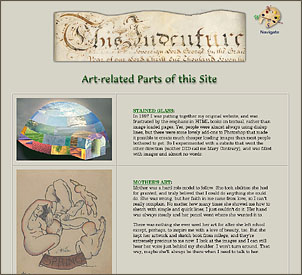Friedrich Paul Thumann (1834-1908)
[Paul Thumann, Friedrich Paul Thumann]
| Pupil of:
| Julius Hubner and Pauwels |
Friedrich Paul Thumann, who was born at Tschaksdorf, in the Lausitz, in 1834, was originally intended
for a scientific career, and studied with that purpose at the engineering school at Glogau. At the age
of nineteen, however, he entered the Berlin Academy as an art student. In 1856 he settled in Dresden,
where, until 1860, he remained as a pupil of Julius Hubner. He had now become known as a painter,
both of portraits and religious compositions, which found favor. In 1860 he removed to Leipzig,
the great German publishing centre, where as a draughtsman and illustrator for books and periodicals
he acquired both a wide reputation and a great deal of money. This enabled him in 1863 to resume
his study of painting, which he did under Professor Pauwels at Weimar. After travelling in Italy,
France and England, he in 1866 became a professor at the Weimar Academy, which he exchanged six years
later for the Academy at Dresden, and in 1875 for a similar post in Berlin, where he still remains.
"The Sirens" is an extremely characteristic work from his brush, and gives
a new view of a subject which has already been treated in "Modern Figure Painting" by different artists.
[NY Times January 28, 1975 - Psyche, the White Rock Girl: No Longer Topless]
Previous Artist Next Artist
|
Hearst's Chicago American Art Study Pictures. Reproductions of the Masterpieces of Art.
Free with the Sunday American. Art Supplement Co. Sunday, Nov. 3, 1901.
Paul Thumann was born at Tachacksdeft, Lusatia, October 5, 1834. After going through the usual school
duties he studied for an illustrator, and it was through books and periodicals that the public first
made the acquaintance of his graceful figures. He studied for several years in the Dresden Academies
under Julius Huber, working at Leipsic as an illustrator from 1860 until 1863. It was not until
his work as an illustrator was an established fact that he commenced his studies under Pauwels, in Weimar,
and entered that special world supposed to be habituated only by knights of the brush.
In 1865 he visited Italy, making a careful and conscientious study of the old masters.
During the year 1866 he studied in England, where he received many important commissions.
In 1867 he went to France for a year's study. Upon his return from Paris he became professor of the
Weimar Art School, a position which he filled so acceptably that he was called to the Dresden Academy
in 1872, where he occupied a similar position. In 1879 he became director of the Berlin Academy,
and during the same year was awarded the Berlin gold medal. His great success as a teacher has made
him widely known throughout the world.
|
|
|
|
Antique Reproductions
|
|






![]() Copyright © 2007, Mary S. Van Deusen
Copyright © 2007, Mary S. Van Deusen